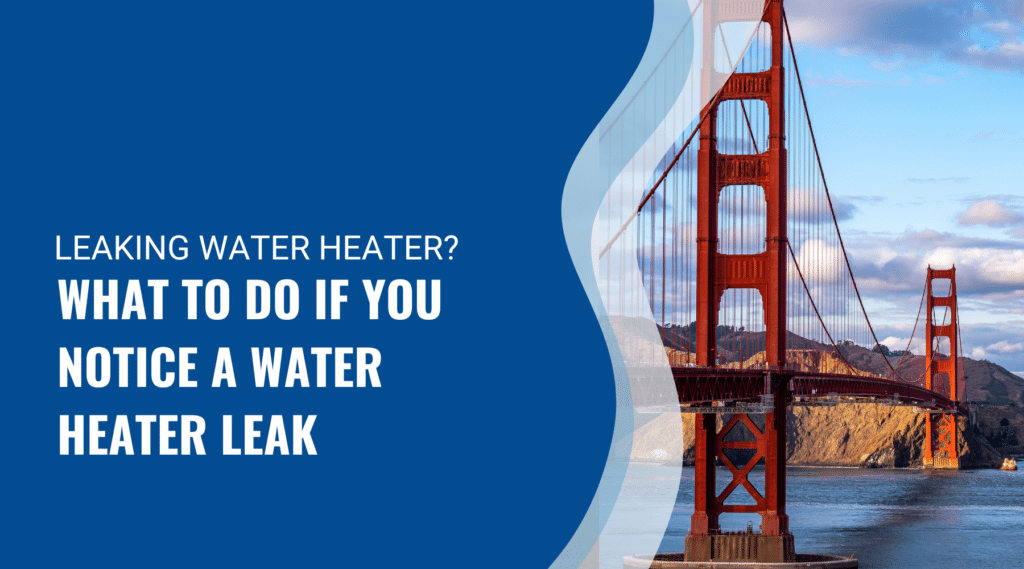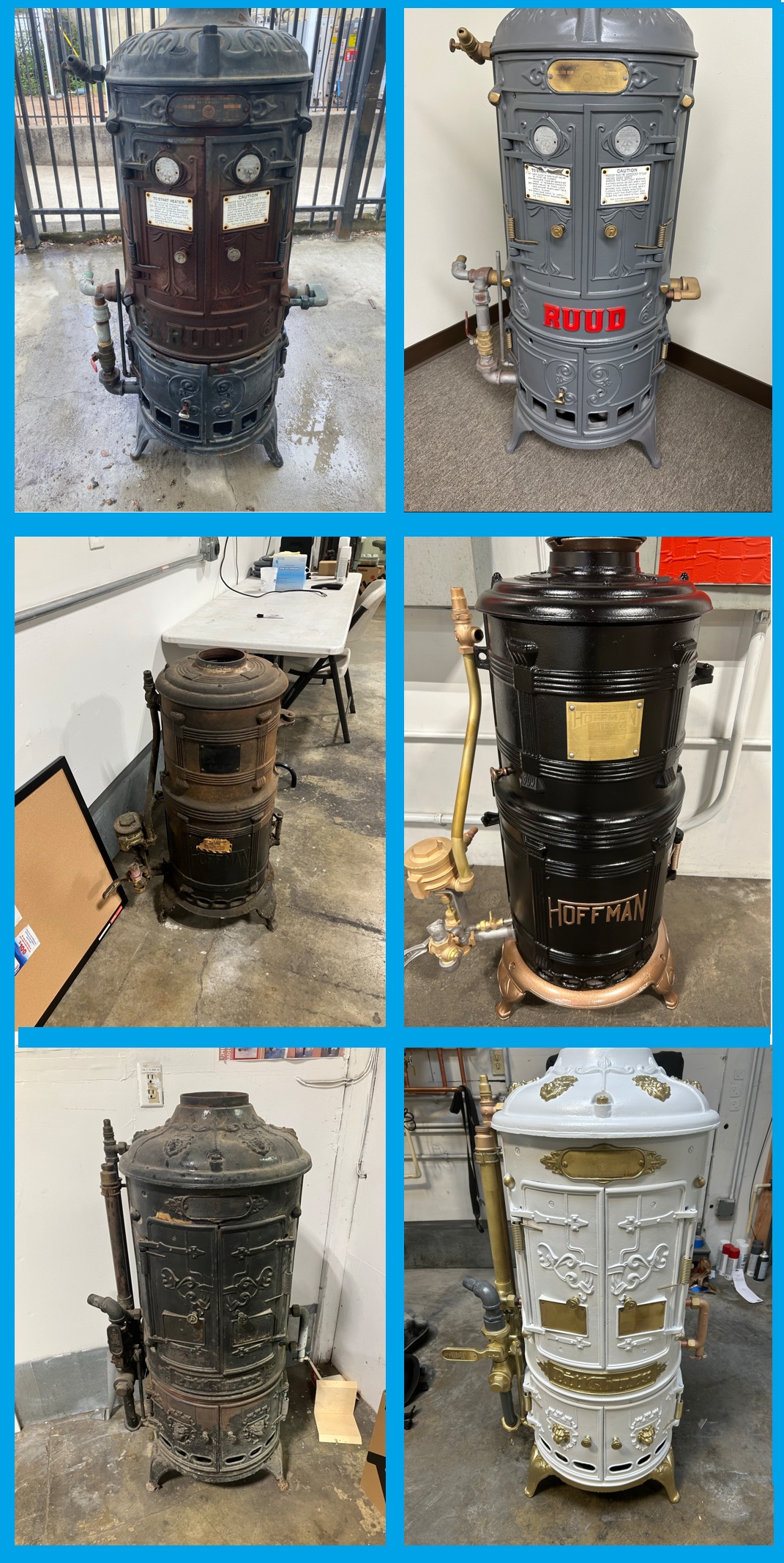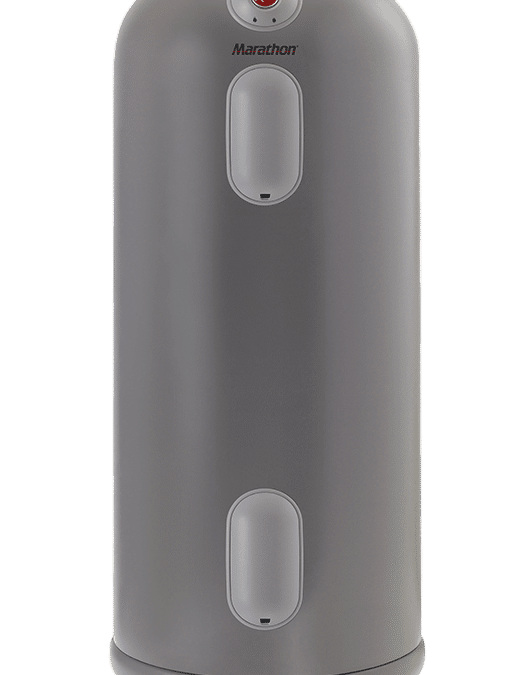Your water heater plays an important role in your home. As such, if something goes wrong with it, it’s important to get it fixed as soon as possible to keep your house in working order. This is especially true if you’re a property manager who may have multiple tenants counting on them to keep their water heater in proper working order. A water heater leak can cause serious property damage and so it’s critical to call in a professional at the first signs of a water heater leak.
Leaking water is never a good sign. Whether the leak is a small, steady drip or an uncontrollable gush of water, it can lead to costly water damage if you aren’t careful.
One of the most common issues homeowners and property managers face when it comes to a water heater is a leak. Sometimes you may notice your water heater leaking from the bottom, while other times you may be facing a water heater line leak. It’s also possible to have a water heater leaking from the top.
If you’ve noticed water pooling at the base of your water heater tank, it’s understandable if you’re concerned. It’s important to identify the source of the leak quickly to prevent damage to property and keep your tenants safe and well taken care of.
Have you never been taught what to do if your water heater is leaking? Fortunately, we’re here to help. Let’s discuss how to determine the source of the leak and the steps you should take to avoid any further water damage.
First Steps If You Notice A Water Heater Leak
If you’ve been notified that a tenant has discovered a water heater leak, you need to act quickly. This is because many types of water heaters automatically refill themselves when they start to lose water, so a small leak can become a major issue if you don’t take care of the problem quickly. Most leaks require the help of a professional plumber to remedy, while others can be taken care of more easily. Learn more about which water heater leaks are which below.
Before you go about fixing the leak, it’s a good idea to confirm that your water heater is actually leaking. Putting down a dry towel can help you determine the source of the leak—and rule out condensation or another culprit. Especially if you’re dealing with a water heater leaking from the bottom. Putting down something like a newspaper or a towel can be particularly helpful in diagnosing the source of the leak. Checking into this before you turn off your water, gas, or electric (depending on how your heater is powered) is key.
Find Where the Leak Is Coming From
To fully understand how to stop water heater leaks, it’s important to know what can cause them to happen in the first place. Unfortunately, there are many potential reasons why this problem may occur in the first place. We’ll go over some of the most common causes of water heater leaks in more detail below.
Drain Valve
If the water heater is leaking from the bottom of the tank, the drain valve could be to blame. This valve plays an important role during water heater maintenance — however, it can become worn and loose as time goes on. You can typically tighten a loose drain valve with a pipe wrench, but if it’s become excessively worn, then you might need to replace it.
T&P Valve
Every traditional water heater will have a temperature and pressure relief valve (otherwise known as a T&P valve). When this valve detects excessive pressure inside the water heater tank, it will release a small amount of water or steam to regulate the pressure.
Of course, the T&P valve can become faulty or worn over time. As a result, you might notice water leaking from the valve even when the tank’s water pressure is at a stable level. You’ll need to replace the valve if it has become faulty, but fortunately, a professional plumber can help you with this task.
Inlet & Outlet Connections
If the tank is leaking from the top, you might be dealing with loose cold water inlet and hot water inlet connections. You can usually tighten these valves to fix the problem, but if the leak persists, there’s a high probability that they’ll need to be replaced.
Crack in the Tank
If you’ve been neglecting water heater maintenance, there’s a good chance that sediment has collected at the bottom of the tank. A considerable amount of this sediment can cause many problems for your water heater — including cracks in the tank. This damage will usually require you to replace the entire water heater.
Shut Off the Water
Hopefully, by now, you’ve located the source of the problem. However, you’re probably still wondering what to do if your water heater is leaking and you cannot stop it. First and foremost, you’ll want to start by turning off the water to the water heater.
The first step is to shut off the cold water supply. This valve can sometimes be difficult to locate, so take your time and be careful. If you’re struggling to locate or reach the cold water shutoff valve, you can alternatively close the main water valve instead.
Shut Down the Water Heater
Now that you’ve successfully shut off the water going to your water heater, it’s time to turn off the power to the unit as well. If you have an electric water heater inside your home, you can shut off the power directly at the breaker. If you’re dealing with a gas water heater, you should cut off the gas at the gas supply valve.
Don’t skip over this step when learning how to stop water heater leaks. Although it’s important to shut off the water to the unit, it’s critical that you shut off the power to it as well.
Call a Professional for Assistance
If you ask several professional plumbers what to do if your water heater is leaking, they’ll likely all tell you the same thing: call an expert for help. Although you might be tempted to troubleshoot and fix the issue yourself, you risk creating an even larger problem. This is especially true if you’ve never fixed a plumbing leak of this caliber before.
Calling a plumber is certainly an important step in the process. A professional will know how to stop water heater leaks and provide a quick, dependable solution.
Clean Up Water Around the Tank
After you’ve called your local water heater expert for assistance, you’ll want to clean up any water pooling on to the floor. You can put some paper towels around the tank’s base or use regular towels to mop the water. In any case, this is a crucial step that can help prevent additional water damage from occurring.
Are All Leaks Serious?
You should address all water heater leaks promptly to prevent them from escalating into more significant and costly problems. While you can resolve some leaks by simply tightening a bolt or connection, others require more complex solutions. We strongly advise against having tenants attempt to fix any leaks. Even minor leaks need attention from licensed, bonded, and insured professionals. As a property owner, the last thing you want is to face liability issues that could cost you money or lead to injuries.
Should A Water Heater Leak Ever Be A DIY Job?
If your water heater leaks from the top, the hot or cold inlets likely have issues. Homeowners can often fix this themselves by replacing the worn-down or clogged line or valve. You can usually find a replacement line or valve at a hardware store and complete this DIY job with just a wrench. However, if you’re a property manager, we recommend hiring a professional plumber to replace any inlet valves. Never let tenants perform plumbing tasks. Doing so could cause property damage or, worse, personal injuries like scalding.
Some homeowners choose to replace their water heater’s T&P (Temperature and Pressure) valve on their own. This valve is crucial for maintaining proper pressure in your water heater tank. If you notice water flowing through a closed relief valve, it’s time to replace it. However, if the valve is open, releasing extra pressure, it likely still has a problem. In this case, it’s better to let experts handle the replacement. The complexity of dealing with T&P valve issues often requires professional skills to ensure safety and proper functionality.
When to Call In A Pro For Your Leaking Water Heater?
It’s never wrong to call a professional plumber to inspect and fix your water heater. It’s best to leave leaks to a professional team whose work is backed by insurance. This is particularly true if you’re dealing with an internal tank leak. If you’ve got an internal tank leak, you’ll need to have your entire water heater replaced by a professional. This can range in price, depending on the hourly rate of your technician, geography and the cost of your replacement water heater, to name a few. Thankfully, you can purchase a Rheem water heater or other reliable brand and have it installed quickly by calling Fast Water Heater’s on-demand team.
What Constitutes A Water Heater Emergency?
While not every water heater leak signifies an emergency, the pressurized nature of these devices means that a leak could indicate a serious problem that requires immediate attention. This is particularly true if the leak affects the operation of your T&P (Temperature and Pressure) valve, potentially leading to a burst tank. In such cases, prompt action is crucial to prevent more severe issues.
Potential Water Heater Emergency Situations:
- Broken or defective temperature relief valve
- Leaks from the top or bottom of a water heater
- No hot water or water at all
In these situations, it’s critical that you reach out to an emergency plumbing company like Fast Water Heater to get the problem solved properly, efficiently and most importantly, quickly. Having water heater emergencies remedied safely will be something you’re grateful for. If you’re facing a water heater emergency, contact us today to get your water heater back in working order.
If You Have a Water Heater Leak, Call Our Local Experts!
It’s easy to feel overwhelmed if you don’t know how to stop water heater leaks. These leaks can lead to costly repairs and extensive damage to your home if you don’t act quickly, so it’s important to be educated on the subject.
Now that you know what to do if your water heater is leaking, turn to the experts at Fast Water Heater for help! Our team is highly trained and experienced, so you can count on us to repair water heaters quickly and efficiently.
Whether you’re experiencing a faulty temperature/pressure relief valve or a damaged water heater tank, rest assured that we’ll provide you with a reliable solution. We proudly provide same-day hot water heater installations and offer emergency availability. Contact us for more information about our services today!




